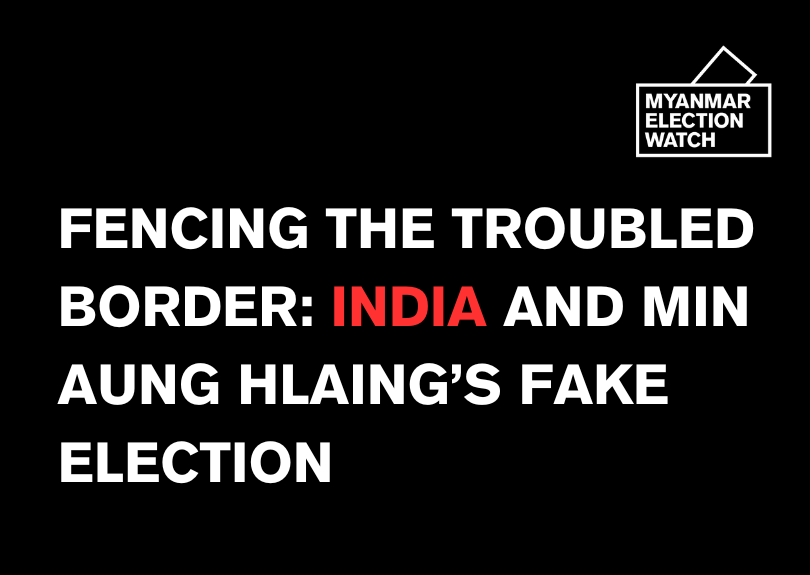Over the last days of July, Min Aung Hlaing has been pushing his election narrative to anyone who might listen.

His audience has included regional representatives gathered for the Bay of Bengal Initiative for Multi-Sectoral Cooperation, BIMSTEC. Some of its representatives have been meeting in Nay Pyi Taw.
The particular target for his words is India, Myanmar’s mighty western neighbour.
Min Aung Hlaing’s coup has not been good for India. The junta has grown closer to China, and Chinese influence over northern Myanmar is increasing. India’s trade has shrunk, except in armaments. The junta’s war against the people of Chin and Sagaing has greatly increased refugee numbers in Mizoram. Non-junta groups now control the border crossings along the 1643km border that India and Myanmar share.
No wonder that Indian officials are now talking openly of “fencing the troubled border.”
The announcement that Min Aung Hlaing is to be acting President will not likely assuage these concerns. Myanmar looks like a state of one person, with policy decided by that one person and for that one person.
An election might sound good to Min Aung Hlaing in the gilded halls of Nay Pyi Taw.
A sham election with no popular support will not solve India’s Myanmar problems. Indeed, it will make it worse.
Firstly, because the election strategy does not recognise reality. The junta is losing territory all the time.
Secondly, because any election proposed under the restrictive laws introduced since the coup will restrict participation. Ethnic parties and the NLD will be excluded.
And, finally, because even the effort to impose an election and a census will create violence, not reduce it.
The junta stands accused in recent days of torching more than 91,000 homes. What kind of election will that create? Will the people vote for those who burn their homes, who torch their crops, who strip them of their future? It seems unlikely.
In fact, the people of Myanmar are already voting.
Faced with a choice between Min Aung Hlaing and … well, Min Aung Hlaing… the people are choosing bravely a non-junta future, free of military rule.
India needs to notice.
The Indian Government seeks to embed its international democratic identity. Speaking in March, Prime Minister Modi told the world that:
India has an ancient and unbroken culture of democracy. Consensus-building, open dialogue and free discussion have resonated throughout India's history. That is why my fellow citizens consider India to be the Mother of Democracy.
India matters to Myanmar. Its government has an opportunity to live up to its Prime Minister’s vision, and to be a force for constructive change.
The Indian Government should end its support for a fake election that will only worsen its Myanmar problem.
India can use existing Track 1.5 discussions and new engagement with the people of Myanmar to work for a sustainable future – through dialogue with all parties and real consensus-building, not via a dictator’s fake ballot.
That is how to create a future where friendship, cooperation and trade between the two countries can again become a living reality, and not just empty talk.
